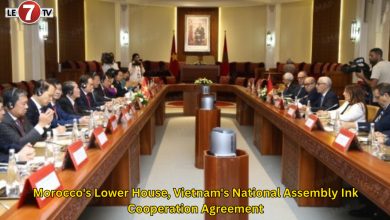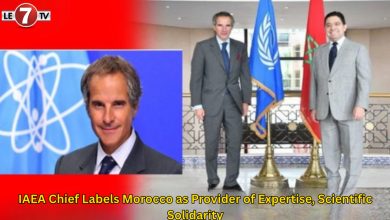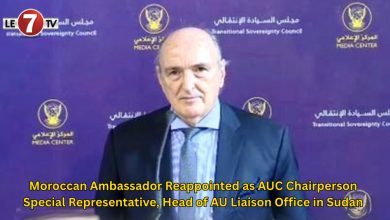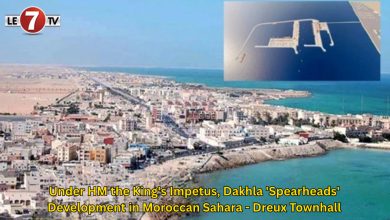Tebboune the Mythmaker: A Foreign Policy Based on Lies and Illusions
Algerian President Abdelmadjid Tebboune has once again found himself at the center of a diplomatic controversy, this time by claiming, in front of Italian Prime Minister Giorgia Meloni, that Italy supports the so-called “inalienable right of the Sahrawi people to self-determination.” The only problem? It never happened.
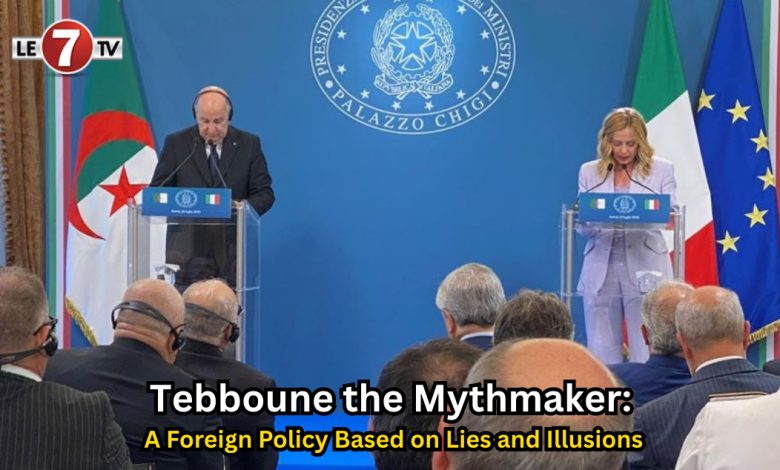
Standing beside Meloni during a press conference, Tebboune confidently stated that Rome and Algiers share the same position on the Western Sahara issue, going so far as to declare a “joint reaffirmation” of support for the UN envoy and the right to self-determination for the Sahrawis.
Yet no such statement appears in the joint declaration signed between the two countries. Italy’s stance, as outlined in the official document, refers only to a “mutually acceptable political solution under the auspices of the United Nations.” It is the same neutral language used by many countries and one that aligns more closely with Morocco’s autonomy initiative than with Algeria’s separatist narrative.
None of this, however, stopped Algeria’s state news agency APS from running with the fiction, enthusiastically amplifying Tebboune’s invented narrative. The regime’s propaganda machine seems to have little use for facts, particularly when they contradict its long-standing obsession with Western Sahara.
This is not the first time Algeria has been caught twisting international statements to suit its agenda. Just last year, during a visit by the Rwandan president, officials in Algiers tried to insinuate that Kigali supported their stance on the Sahara. The Rwandan government quickly issued a firm denial, reminding the world, and Algeria, that diplomacy still has rules.
What is more concerning is the pattern of confusion and contradiction that characterizes Algeria’s diplomatic approach to the Sahara file. One day it claims to be a “mere observer.” The next, it presents itself as a key stakeholder. This constant shifting in tone reflects not a calculated strategy, but a deep-seated uncertainty, and perhaps even panic, in the face of Morocco’s growing international support.
As Rabat’s autonomy plan gains traction across Africa, Europe, the Middle East and beyond, Algeria finds itself increasingly isolated. Rather than recalibrate, the regime appears to retreat into fiction, inventing allies where none exist and hearing endorsements that were never given.
Misleading the public at home is one thing. Misrepresenting the words of world leaders, in their presence, is quite another. It undermines the very credibility of Algerian diplomacy and signals a troubling disregard for basic international norms.
At a time when Algeria is grappling with internal economic and political fragility, Tebboune’s fantasy diplomacy does little to reassure observers. The rewriting of official communiqués, the manipulation of foreign statements and the reliance on bombastic rhetoric may serve domestic propaganda needs, but they do nothing to advance Algeria’s standing on the international stage.
How far will this charade go? From inflated martyr counts to phantom foreign investments, and now imaginary diplomatic endorsements, Tebboune’s Algeria seems locked in a parallel reality where fiction trumps fact and the truth is just another casualty of state narrative.
The world is watching, and not buying it.
Translated from Abderrazzak Boussaid’s French text/le7tv





